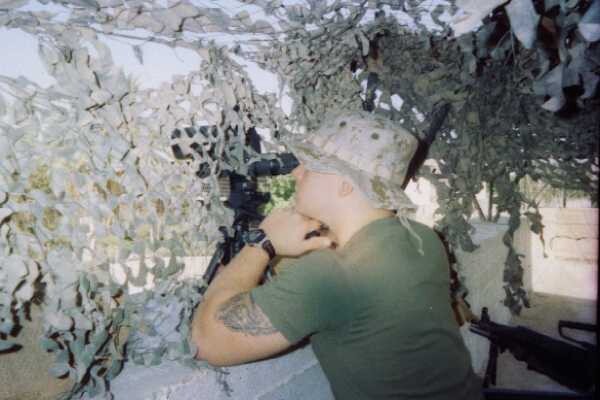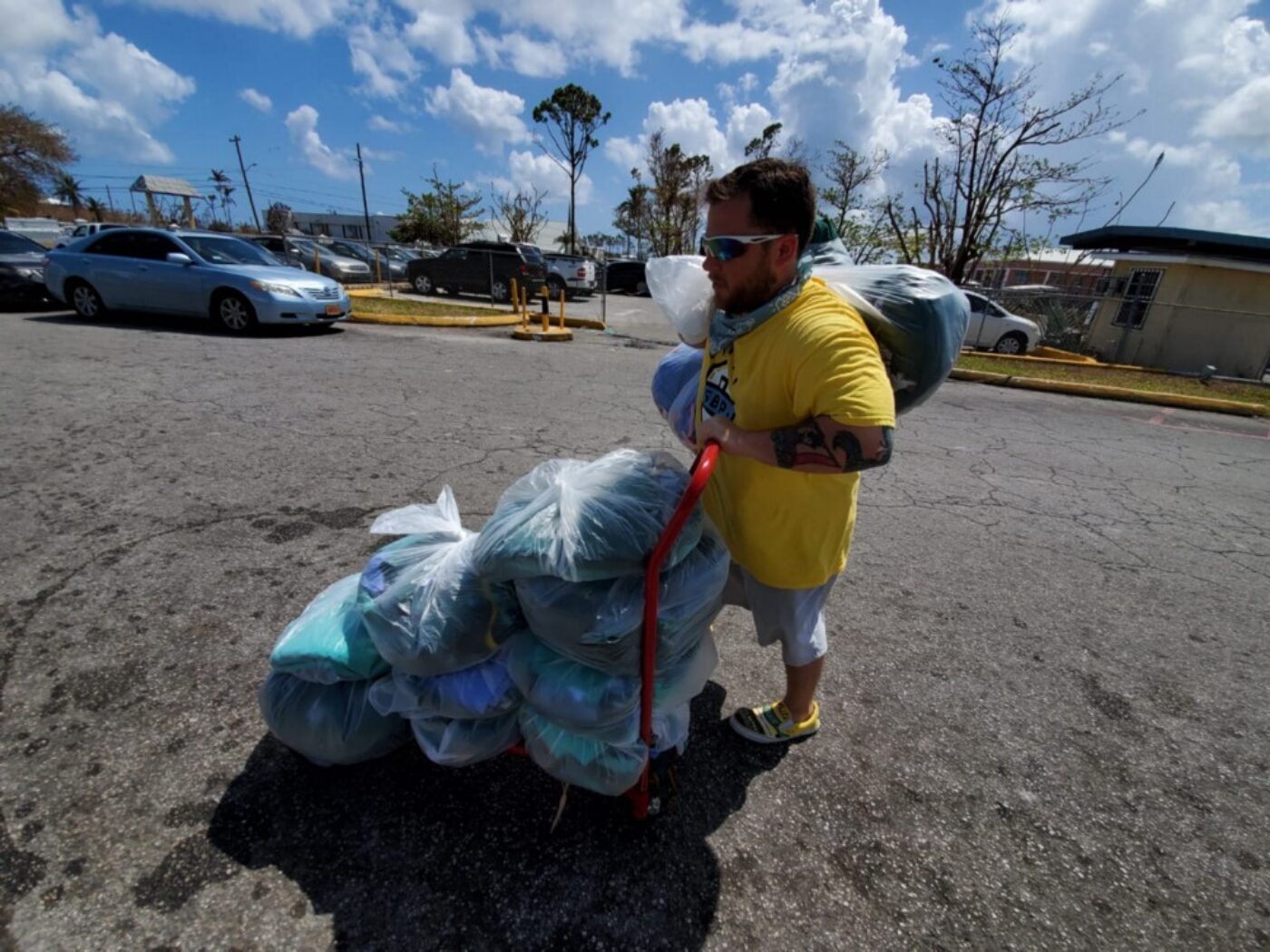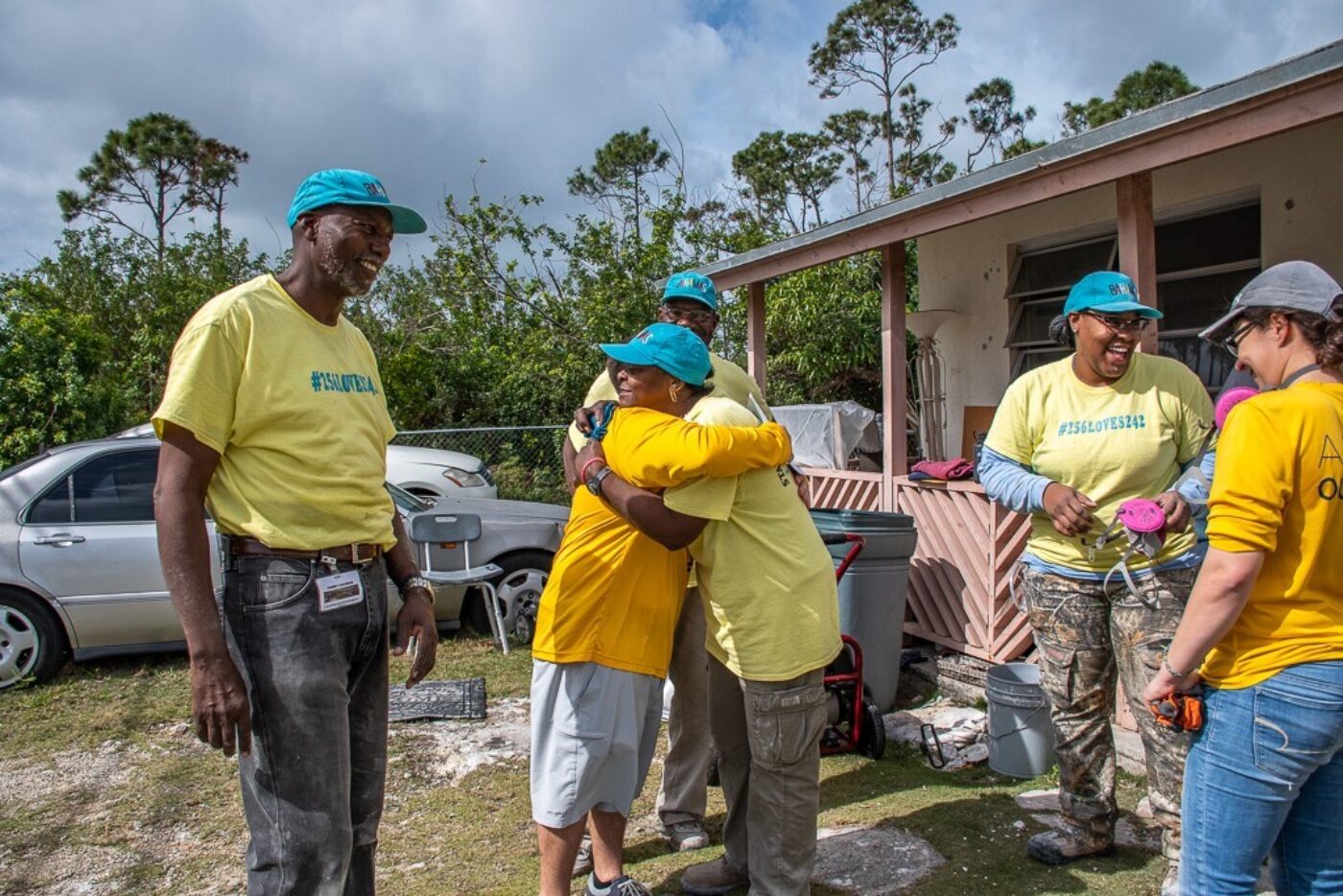
Observation post, Iraq 2005 - Andy Stofleth is the Executive Director of SBP Bahamas. He served four years active duty in the Marine Corps, 2004–08, with combat deployments to Iraq in 2005 and 2006. Here, he talks about establishing SBP’s first international long-term recovery operating site and how his training as a Marine shapes the work he does in the Bahamas facilitating Hurricane Dorian recovery.
We all crave purpose. The majority of us spend most of our lives in search of it. When you’re put in a situation where service has deep meaning to you (like the Marines), you happen to find purpose sooner. You’re partaking in something bigger than yourself, which is really what service is: it’s not about speculation, it’s about rolling up your sleeves and doing something.
Sadly, when many veterans leave the service, they lose that sense of purpose and community. It was certainly the case for me. Luckily, I was able to re-engage in meaningful work and gain that sense of purpose back by serving in the non-profit sector.
Most people’s perceptions of the military paint it as an environment of doing what you’re told. To me, it’s more comparable to high-stakes problem solving where making critical decisions quickly requires you to pull from experience, training, intuition and your gut feelings.
The core tenants of the Marine Corps are improvise, adapt and overcome. That sums up the initial days and weeks following a major disaster. Things are always in flux and critical needs are constantly changing. You have to have the mindset required to adapt and find new solutions that continue to add value in the interim and then you’ll have to do it again when things change again.

Freeport, Grand Bahama — bringing fresh scrubs to Rand Memorial Hospital (staff lost their homes and had been wearing the same scrubs for 5+ days)
When SBP shifted from response to long-term recovery, we continued to adapt and overcome. Ingrained into SBP’s culture is this concept of continuous improvement — we are always looking for ways to improve our processes so that we can better serve people in need.
I originally came to the Bahamas for five days to document the immense need and then tell that story stateside. I quickly realized I could better serve the people of the Bahamas and our mission by staying on the ground.
In the early days of any disaster, it’s our job to engage in damage assessment, which is essentially reconnaissance — a military staple of scouting ahead, surveying, identifying vulnerabilities and focusing on the critical infrastructure.
Initially, that meant us showing up at Rand Memorial Hospital at 7 a.m. and asking the hospital administrator what she and her staff needed and then making calls stateside to our partners to fill that need.

Bahamas volunteers, 2019
There was lots of eating peanuts and beef jerky on runs to the airport for supplies and then calling in another delivery as soon as those goods were delivered. We were constantly trying to figure out what the next need was.
In the military, you’re working as part of a coalition to coordinate operations. You put aside your differences and form a tight-knit community, which, to me, is at the heart of disaster recovery. There are individual organizations developing their own programming, but you’re also coordinating services together so that assistance is evenly distributed across the impacted area.
As of October, we’ve rebuilt homes for 125 families in Freeport and will finish homes for another 25 families by year-end. We’re also re-investing in the local economy as we partner with eight local contractors who employ 25 Bahamians. This is service. This is purpose.

